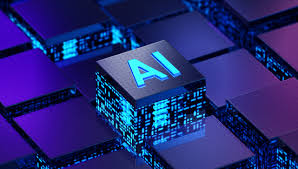Artificial Intelligence (AI) is one of the most transformative technologies of the 21st century that is revolutionizing economics, industries, as well as everyday life. But what precisely does artificial intelligence, and why is it significant?
At its core, AI refers to the reproduction of human intelligence by machines that are programmed to think and learn as humans do. This entails the creation of machines and algorithms that can perform tasks that typically require human intelligence like problem-solving, pattern recognition, and decision-making.
There are two main types of AI: Narrow AI and General AI. Narrow AI is also known as Weak AI, is designed and trained for specific jobs. It includes virtual assistants like Siri and Alexa as well as recommendation systems that are available on streaming platforms, and chatbots used in customer service. These systems operate within a limited scope and cannot perform tasks beyond their training.
Contrary to that, General AI, or Strong AI, refers to a more advanced form of artificial intelligence capable of understanding the world around it, apply knowledge in a manner that is similar to human cognitive. General AI is a largely theoretical concept at this stage, with researchers striving to build systems that can match the flexibility and cognitive abilities that humans have.
AI technology is built on various techniques, including machines learning (ML) and deep learning. Machine learning is a subset of AI that involves training algorithms using large amounts of data, enabling them to improve their performance with time and experiences. Deep learning, which is a subset of machine learning, utilizes neural networks with many layers (hence “deep”) to analyze complex patterns in data, such as recognition of photographs or processing language.
A single of the more powerful uses of AI is in healthcare. AI systems are able to analyze medical images with remarkable accuracy aid in the discovery of drugs, and even determine the outcome of patients. In finance, AI algorithms are used for fraud detection algorithms, trading algorithmic, and personalised financial advice. In transportation, autonomous vehicles rely on AI to navigate the roads and take real-time decision.
However the growing use of artificial intelligence (umělá inteligence) can also bring up important ethical and societal considerations. Issues such as data privacy, job displacement, and the possibility of biased algorithms should be considered for ensuring that AI is designed and implemented in a responsible manner. Ensuring transparency, fairness, as well as accountability within AI systems is crucial for creating trust and reducing risks.
In short, AI is a powerful and rapidly evolving technology that has the potential to transform all aspects of our lives. Knowing its capabilities, applications and challenges is crucial to taking advantage of its advantages while considering the ethical and social consequences. As AI continues to advance, it will undoubtedly take on a larger role to shape the next generation.
